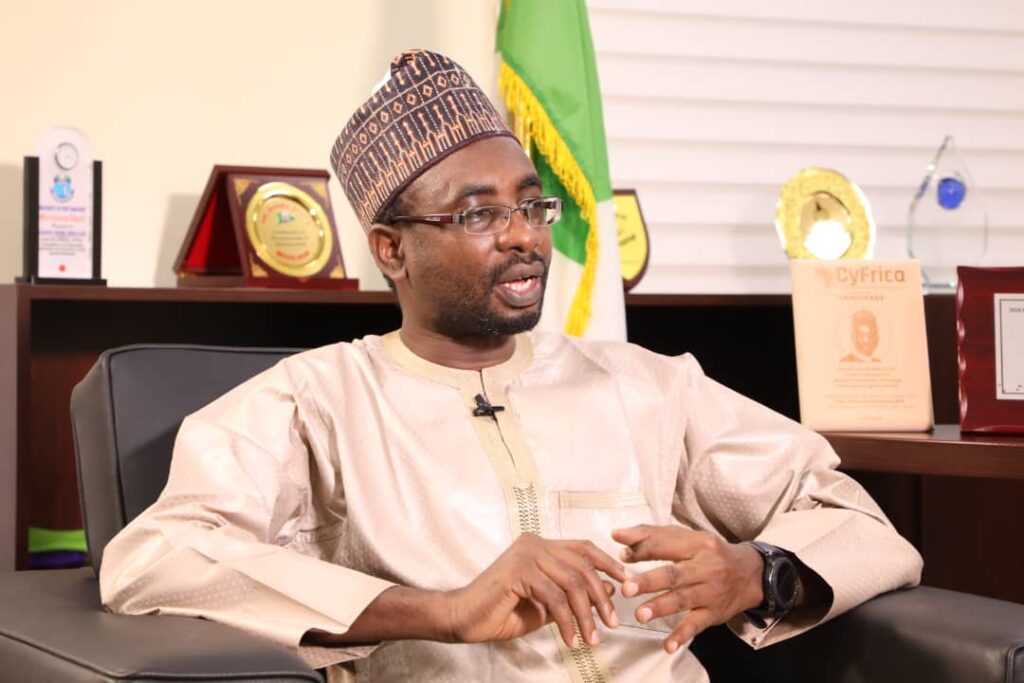In an official press release, the National Information Technology Development Agency (NITDA), advised Nigerians on best practices when using Facebook-owned WhatsApp Messenger.
The agency revealed that it had engaged Facebook to address the concerns about changes to the WhatsApp Terms of Services and Privacy Policy which took effect on May 15th, 2021.
According to NITDA, the Agency clearly understands that millions of Nigerians are subscribed to the messaging platform and go about their businesses, social, educational, and other purposes on a daily basis.
Hence, the need to approach the social media giant on its data mining approach.
To ensure that it aligns its views with that of the general public on the matter at hand, NITDA collaborated with the Africa Network of Data Protection Authorities.
Both entities engaged Facebook to seek clarification on specific subjects including the “Datasets collected by WhatsApp” as well as other information that are accessed on the users’ devices.

NITDA: Screenshot of basic datasets collected from a WhatsApp user
Other than the basic information that Facebook have access to, the tech giant can as well collect other information as seen in the snapshot below.

NITDA: Screenshot of other information collected by Facebook from a WhatsApp user
Further, in its statement, NITDA also revealed that Facebook shares the dataset and information collected from its users with its other product portfolio and vice versa.
According to Facebook, WhatsApp receives information from and shares information with, the other Facebook Companies.
“We may use the information we receive from them and they may use the information we share with them, to help operate, provide, improve, understand, customize, support, and market our services and their offerings, including the Facebook company products,” Facebook stated.

NITDA: Screenshot of information collected by WhatsApp and shared with Facebook
Private Messages are encrypted and not read by Facebook
With almost everything not hidden from WhatsApp, and by extension, Facebook, the social media giant confirmed that messages shared on WhatsApp consumer version are encrypted.
However, the company have its reservations as it claimed that metadata (data about the usage of the service) which is also deemed as personal information is shared with other members of the Facebook Group.
ALSO READ: Flutterwave Partners Basketball Africa League In New Sponsorship Deal
With so much said, Facebook further clarified that users are at liberty to decide on giving consent to the processing of their data based on the new privacy.
Having recognised the part of ‘consent’ as a lawful basis for data processing, NITDA is convinced that the acceptance of the new policy is subject to user consent.
NITDA advises Nigerians on best practices
Although the part of consent limits how the agency can weigh in on the matter as it means that users are not necessarily constrained to provide any dataset, NITDA went ahead to issue the following advice;
- Nigerians may wish to note that there are other available platforms with similar functionalities which they may wish to explore. Choice of the platform should consider data sharing practices, privacy, ease of use among others; and
- Limit the sharing of sensitive personal information on private messaging and social media platforms as the initial promise of privacy and security is now being overridden on the basis of business exigency.
With that said, NITDA said that Nigeria’s engagement with Facebook and its messaging platforms will continue especially as they have shared their own opinion on areas to improve compliance with the NDPR.
The Nigeria Data Protection Regulation (NDPR) is a subset of NITDA that’s in charge of Data protection in Nigeria.
ALSO READ: What You Should Know About SpaceX’s Potential Launch Of Starlink Satellite Internet In Nigeria
Meanwhile, NITDA alongside its stakeholders is exploring new options to ensure that Nigerians do not become victims of digital colonialism.
“Our national security, dignity and individual privacy are cherished considerations we must not lose. Because of this, we shall work with the Federal Ministry of Communications and Digital Economy to organize a hackathon for Nigerians to pitch solutions that can provide services that will provide functional alternatives to existing global social platforms,” the latter part of the statement read.



















 and then
and then